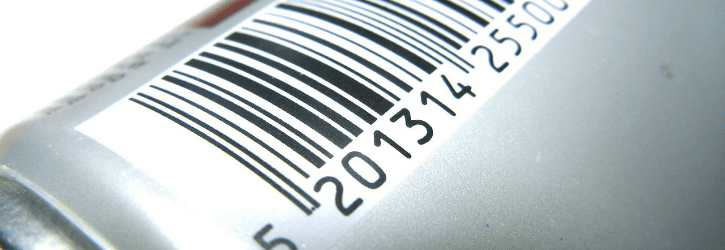Category: Medical

Resuscitation system recall issued after risk of damage to lungs found
An error with a resuscitation system has been reported to risk damage to lungs, according to information released by the Medicines and Healthcare Products Regulatory Agency (MHRA).
Manufactured by Intersurgical, the manual resuscitation system – named as the “Bag valve mask” (BVM) – risks damage to lungs due to the potential for excess pressure being delivered by the system.
Given that the defect is with a resuscitation system, this recall is an important one as lives may be at risk as a result of it.
Continue Reading…

Cancer drug recall confirmed by UK regulators
A cancer drug recall has been initiated due to reports of excessive levels of an active ingredient used in the drug.
Pharmaceutical company AstraZeneca UK has initiated the recall, primarily for batch NG327, because the “level of olaparib polymorphic form L exceeds the registered specification limit”.
As well as the batch being recalled above, there are other batches that are a part of the recall as well, which is all said to be a part of a precautionary measure.
Continue Reading…

Risks of infection for patients where Zimmer Biomet hip and trauma instruments are used
Zimmer Biomet have been in the news in recent years over knee replacement device problems, which is one of many stories where medical manufacturers have been in the spotlight for medical device compensation claims.
You only need to look at the massive Metal-on-Metal hip implant cases to see just how big these kinds of claims are.
In this latest story, Zimmer Biomet are recalling specific hip and trauma instruments over potential risks of infections to patients.
Continue Reading…

MHRA announce recall of rectal / pharyngeal temperature sensors
Rectal / pharyngeal (orally inserted) temperature sensors manufactured by Teleflex are a part of a recent recall published by the Medicines and Healthcare Regulatory Authority (MHRA).
The issue with the devices may lead to a misdiagnosis where an inaccurate temperature reading is noted by a medical professional.
With body temperatures often being pivotal to medical diagnosis, this recall is a serious one where patients may be at risk of incorrect advice and treatment off the back of inaccurate temperature readings.
Continue Reading…

Lab error leads to thousands of cervical screening tests being reviewed
A laboratory run by Pathology First, working on behalf of Basildon and Thurrock NHS Foundation Trust, are having to redo thousands of cervical screening tests for cancer after an error was discovered.
The samples affected, which were taken between April 2016 and September 2017 for women aged between 24 and 29 who had smear tests, as well as a number of women in their 60’s, are being re-screened independently.
The results held by the lab were classed as negative, but having had some 2,500 samples re-screened, 17 women have reportedly been invited for further assessments.
Continue Reading…

Aquilon nebulisers – CE mark withdrawn and supply ceased, but many have remained on the market
Despite withdrawal of the CE safety marking for Aquilon series of nebulisers, manufactured by AFP Medical, the nebulisers have still been placed on the market. A number of devices may have been sold despite the withdrawal of the CE marking, which means the safety of the product cannot be guaranteed.
CE safety certification is vital for consumer and supplier confidence in a product, and when it comes to medical products, such approval – or withdrawal, as is the case here – can be even more important.
Continue Reading…

UK government investigating the scale of harm caused by vaginal mesh implants
Our legal team have been assisting people in various situations involving harm caused by vaginal mesh implants.
The UK government review update is welcome news.
Years after the UK’s Medicines & Healthcare products Regulatory Agency (MHRA) investigated issues and decided against recalls and bans, the National Institute for Health and Clinical Excellence (NICE) has suggested the surgery should be banned, and New Zealand have become the first country in the world to put an outright ban in place.
Continue Reading…

Birth defects reportedly caused by in-utero exposure to Epilepsy Drug
A drug that helps control epileptic seizures has been reportedly linked to birth defects and should not be used by pregnant women or women of child-bearing potential.
Depakote was created by French pharmaceutical drug company Sanofi back in 1967. The British equivalent, Epilim, has been available since 1973.
The drug has been used around the world and has gained regulatory approval for treatment of epilepsy, with variations of the drug introduced in 1995 for bipolar manic episodes, and in 1996 to prevent migraines. But, a generation later, it has been revealed the drug can cause severe birth defects at a significantly high percentage.
Continue Reading…

PharmaTech LLC packs up manufacturing plant after its liquid drugs are found to be contaminated with B.Cepacia bacteria
All of PharmaTech LLC’s liquid drugs made at one manufacturing plant have been recalled, with regulators advising consumers not to use them.
Reportedly, the drugs have been contaminated with Burkholderia cepacia bacteria.
Patient infections have been linked to the drugs, meaning regulators are warning against the use of their products. Notably, this is not PharmaTech’s first brush with the law. Regulators have been involved with them three times in less than a year for similar issues involving the bacteria.
Continue Reading…

MHRA issue “Class 4” drug alert warning for Focus Pharmaceuticals after barcode errors found on 8 medicinal products
The Medicines and Healthcare Products Regulatory Agency (MHRA) issued a Class 4 (caution in use) warning over eight Focus Pharmaceutical medicinal products after a problem was found with the barcodes.
The packaging fault may interfere with prescriptions as the wrong product may be identified when they’re scanned.
The medicines themselves have no reported faults and the rest of the packaging including the name, strength and pharmaceutical form of the medicine is correct as far as the manufacturer and the MHRA are aware.
Continue Reading…